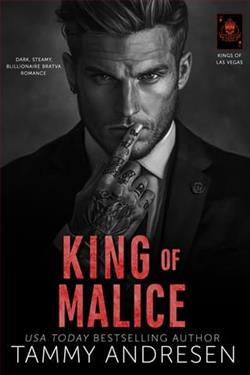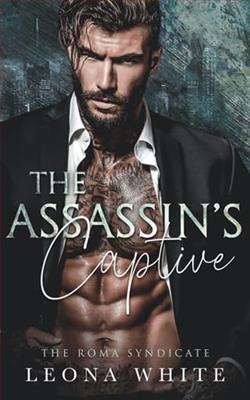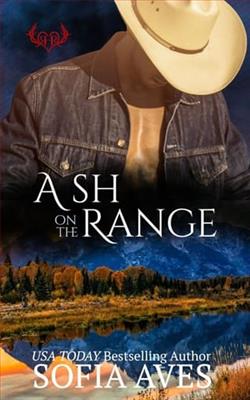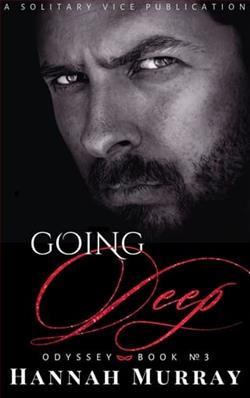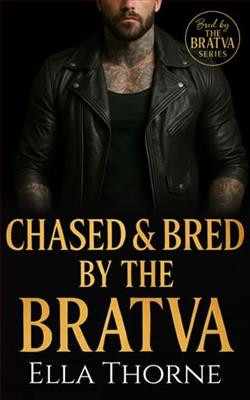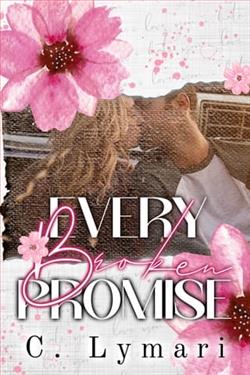Page 62 of The Dragon Ring
I sat back and looked at Morgawse, her hair sticking to her sweaty forehead, her eyes bright with love for the little bundle in her arms, her ordeal all but forgotten. Maybe none of the stories were true. Maybe Medraut had just got a bad press. Maybe he would grow up into one of Arthur’s staunchest supporters.
Maybe.
Chapter Seventeen
Several bodies layin the colonnaded walkway, and one was sprawled on the steps up to the audience chamber. An eerie silence filled the courtyard.
Lann, the red-faced man, set the bar he’d just removed down beside the door and came and stood beside me, looking at the empty courtyard. He had a big kitchen knife in his hand. That there’d been quite a fight was obvious, although we’d been unaffected by it, walled up as we’d been in our little delivery room, and concentrating on something that had seemed far more important. Where had everyone gone? The spotty boy sidled up to stand beside us.
Blood had pooled on the floor tiles, smeared as though someone or something had been dragged through it. I put my hand down to my boot and felt the comforting presence of the dagger stuffed into its top.
Inside the kitchen, the baby set up an angry wailing. Glancing over my shoulder, I saw Morgawse put him to her breast, where he began to suck hungrily. He was a strong little thing. Too strong. It might have been better if he’d died. But that was presuming all I knew about Medraut’s future was true, and no one could tell me that. Guilt washed over me for wishing dead a defenseless baby, who might be quite innocent of all I was attributing to him. Hindsight is a terrible thing, and I was full of it. I alone knew all the stories that had adhered to Arthur down the ages, from the ridiculous medieval inventions to the ones that might have had some basis in truth. And that knowledge made me afraid. Afraid for myself, and afraid for Arthur and this baby.
“Someone will have to go and find out what’s been happening,” I said, to no one in particular.
Lann nodded, and the boy looked frightened. They were probably both worried I was expecting them to go. But I wasn’t.
“I’ll go,” I said firmly. “I need to see what’s going on for myself.”
They didn’t argue. Perhaps they were too used to taking orders to cavil.
I glanced back at Karstyn and Morgawse. The girl’s dark head was bent over her suckling baby. Karstyn had her hand on her shoulder in reassurance. They made a pretty picture. But if Cadwy had won, and Arthur and his men had been killed or put to flight, she and I were in terrible danger here in the Imperial Palace. I had to get us out, and that wouldn’t be easy with a baby and a woman who’d just given birth.
“Go back inside and lock the door again,” I said to Lann, who looked relieved at my words. He was a cook, not a warrior. “And keep the Lady Morgawse and her son safe at all costs. I’m going to find out what’s happened. It looks safe enough for the moment. Go on.” I gave him a little push, which was all it took. He and the boy retreated inside the door and closed it behind them, shutting me out. There was a thump as they slotted the beam back into place.
I was all alone.
For a moment, I stood listening. Now that it was just me, I could hear more. From somewhere distant came the sound of wailing, and the howl of a dog. I bent down and drew the dagger out of my boot. It was warm in my hand, a living blade, shimmering in the late afternoon light. I tightened my fingers around the handle, glad to have it and convinced that if I had to, I would use it. You can change a lot in just a few days. Our primitive selves are lurking still, just below the surface, and mine had fought its way through to the top.
Caution sent me creeping round the edge of the garden under cover of the colonnade, dodging from pillar to pillar, afraid of each closed doorway I passed. But nobody emerged. If there were people behind the doors, they weren’t coming out.
I made it all the way round to the atrium. A soldier with a red-dragon emblem lay sprawled on his back across the entrance. As I moved closer he opened his eyes.
I stopped.
He was young, with short brown hair curling about his forehead and a shadow of stubble on his chin. No older than the Saxon foederati we’d captured two nights ago. Why were they all boys? Did no old men fight? His eyes, somewhere between grey and blue, were dim with pain and fear, and fixed on the dagger in my hands. I stayed well back, as frightened of him as he was of me.
But he wasn’t going anywhere. The broken shaft of a spear protruded from just below his ribcage, rising and falling with every labored breath, and bright blood bubbled in the corners of his mouth. I lowered the dagger.
His lips moved. “Help me.” It was scarcely more than a whisper. His lungs must be punctured. More bloody froth bubbled up. There was nothing I could do for him; he was going to die.
I went down on one knee beside him, heedless of the spreading red pool.
“I’m here. Don’t try to talk.” I took his hand, slick with his own blood, and held it tight. “Everything will be all right,” I lied. “Someone will come in a moment and you’ll be looked after.” I laid the dagger down on the tiled floor and smoothed his forehead. “I’ll stay with you.”
Raised voices came from beyond the doors into the vestibulum, and fear prickled across my skin. Common sense told me I needed to get up and run.
His lips moved, and I had to bend close to hear his words. “Are you an angel?” His voice was weak and thready. The end must be near. I couldn’t leave him.
Someone was shouting right outside the vestibulum’s doors.
“Yes, I am,” I lied. “Come to take you home. You can sleep now. Your work is done.” I don’t know why I said this; it just came into my head. Was I wicked to lie to a dying boy? I didn’t think so. His expression softened, and a look of peace came over his bloodless face.
“Thank you,” he whispered. And then he died.
I’d never beenwithanyone who’d died before. I’d seen my father’s body, but I hadn’t been there when he died. The Saxon had been taken away before he’d been killed. Uthyr had died after I’d left.
For a long moment I knelt there in his blood, lost in the tragedy of so young a death. Then propriety stirred me, before fear could take its place. You had to close the eyes of the dead. I’d seen it done in films and on the television. His gazed sightlessly up at me, the unblinking stare unnerving. I put a trembling hand over his eyelids and tried to close them. They wouldn’t stay shut, and I was seized with rising panic. Was he staring at me? Was he accusing me of having lied? I tried again, holding the lids down for longer, and this time they stayed shut. I heaved a sigh of fleeting relief.










